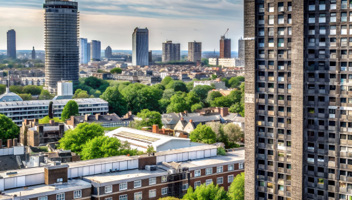In previous blogs, we have looked to keep you up to date with various developments concerning the regulations (The Health Protection (Coronavirus) (Restrictions) (Scotland) Regulations 2020) and guidance issued by the Scottish Government and how that is impacting on the construction sector.
The latest guidance was issued on Tuesday and this summarises the current position with some degree of clarity. In addition, The Health Protection (Coronavirus) (Restrictions) (Scotland) Amendment (No. 2) Regulations 2020 came into force.
So now is a good time to take stock – where are we now?
To put that question into some context, we should kick off by laying out some basic and fundamental facts about the legal position that prevailed prior to the most recent developments this week. These are:
- It was not against the law for a construction site to be open;
- There was no express requirement in the current regulations to implement social distancing measures when carrying out work on a construction site; and
- An individual travelling to a construction site which is their place of work ought not to be subject to any criminal sanctions.
We are all aware, however, that this legal position did and does not reflect the expectations of the Scottish Government and, more generally, large tranches of our society as to how the construction sector should be behaving. The guidance issued this week reinforces the government’s two key messages to the construction sector. These are:
- If work is for “non essential” purposes the site should close; and
- Even where work is for “essential” purposes, the site should still close unless social distancing measures can be observed.
So, does the updated legislation reflect these expectations? The new regulations apply one important change to the existing legislation – however, the legislation still does not reflect the government’s expectations as set out in their guidance.
The important change is that all businesses that are operating are required as a matter of law now to take all reasonable measures to comply with social distancing criteria. Previously, the regulations only imposed such requirements on specified categories of business.
The basic and fundamental facts prevailing prior to this week’s developments remain largely unchanged. Construction sites can still legally open and workers are able to travel to a construction site that is their place of work. However, social distancing is now something that is directly applicable to the construction sector and the enforcement powers that are available to the police through the regulations can now be used to influence behaviours on a construction site.
There continues to be no legislative basis for enforcing the current guidance advising that construction sites for “non essential” projects should close. If we look around (while out for our daily exercise) we will see that most construction sites are currently closed. But will this continue to be the case?
Paradoxically, one consequence of the change in the regulations may be to persuade the construction sector that they are fine to return to site provided that they can work out a way to comply with their legal duties in relation to social distancing.
Compliance with the advice in the guidance that non essential sites should remain closed will depend on the continuing willingness of the construction sector to do what the government considers to be the right thing.
We may soon see more construction sites opening (albeit operating at a reduced scale to accommodate social distancing measures). If the government wants to prevent that from happening they may need to do more than simply rely on the cooperation of the construction sector.
We will keep you informed of any developments on that front.
Related News, Insights & Events

Courts provide guidance on “reasonability” in compensation on termination recovery
A new decision from the Privy Council has provided some guidance on the limits of provisions around the recovery of supply chain costs upon termination for convenience or employer default.

UK government’s response to Grenfell inquiry phase 2 – 10 takeaways
On 26 February 2025, the UK Government published its much anticipated 80-page response to the Phase 2 Report of the Grenfell Tower Inquiry, published in September 2024.

Time for a change: New Scottish time bar law in force 28 February 2025
Significant changes to the Scottish law of time bar are in force on 28 February 2025.





